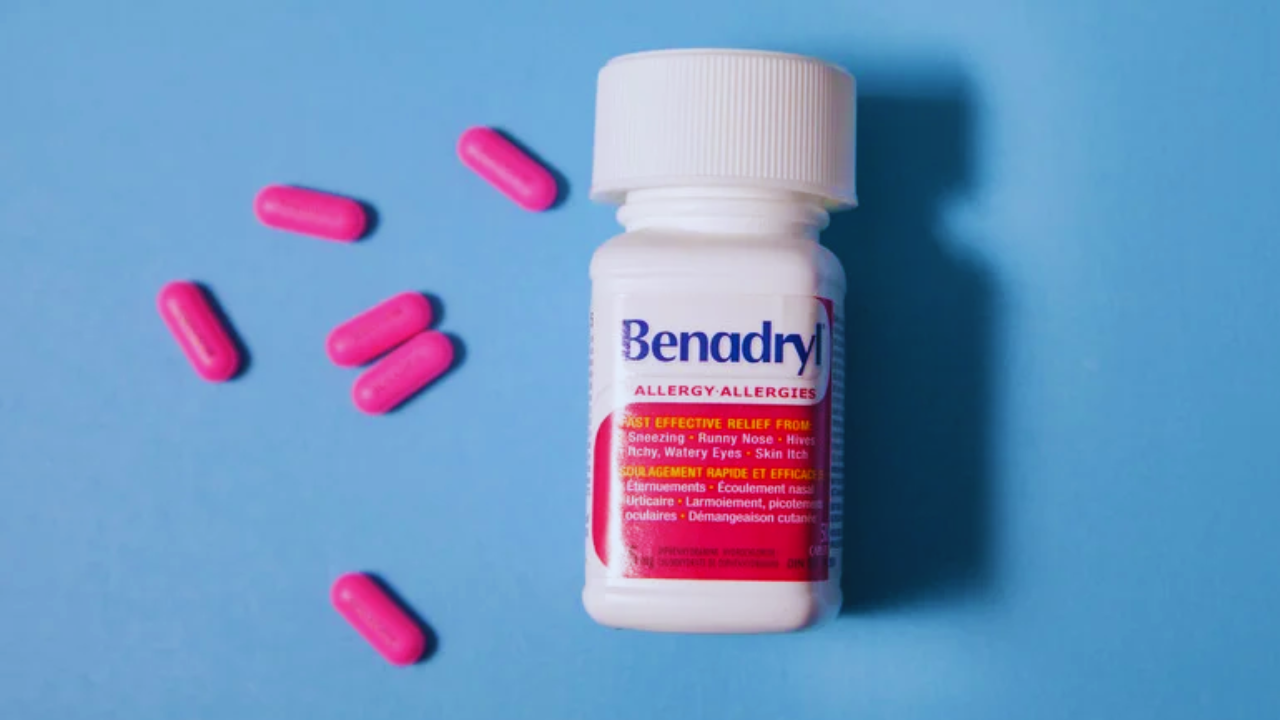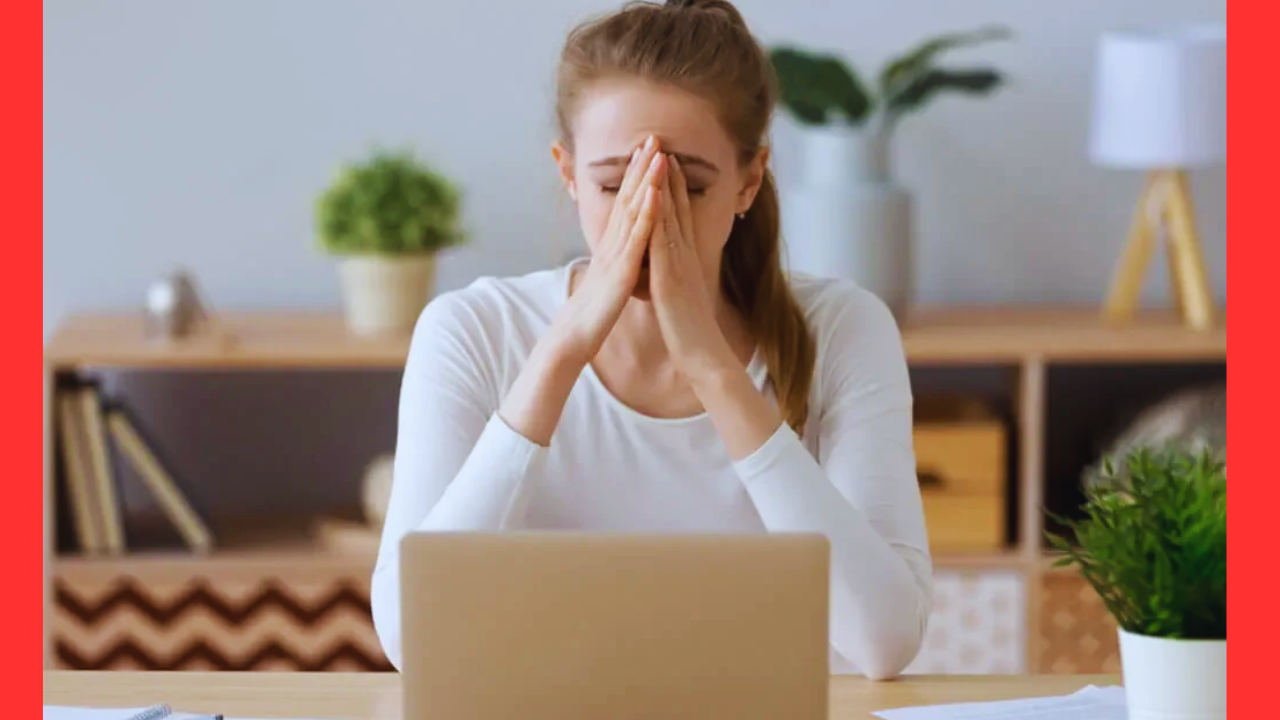
Feeling anxious from time to time is a normal response to stress that everyone experiences. For most people, this anxiety is temporary and linked to unfamiliar or new events, such as speaking in public. Temporary anxiety occurs in everybody, and it usually doesn’t disrupt daily life.
On the other hand, anxiety disorders are more severe and can prevent someone from fully enjoying life. If you have anxiety and prefer not to use traditional medicines or haven’t yet consulted a doctor, you might wonder if over-the-counter medicines such as Benadryl could help reduce your symptoms.
In this article, I will discuss whether you can use Benadryl for anxiety or not. Benadryl is easy to find, works quickly, might help you sleep, and might have a calming effect that might help deal with anxiety.
Understand The Basics of Anxiety
Does Benadryl work for anxiety? Before we discuss Benadryl for anxiety, let’s first understand what anxiety is.
Anxiety is a natural reaction to stress. It’s something we feel when facing challenges like work problems, conflicts with loved ones, or financial struggles. This kind of anxiety typically fades once the stressor is resolved. However, when the worry doesn’t go away, it might signal an anxiety disorder.
Anxiety disorders, like generalized anxiety disorder, affect how people think, feel, and act. In fact, over 40 million adults in the U.S. live with some form of anxiety disorder, making it one of the most common mental health conditions. There are different types of anxiety disorders, each with its own set of triggers and symptoms. Some of the common disorders are:
Post-Traumatic Stress Disorder (PTSD): Post-Traumatic Stress Disorder can occur after someone has experienced a shocking or distressing event, like a military combat, natural disaster, or an assault. It can cause long-lasting emotional and psychological effects.
Generalized Anxiety Disorder (GAD): GAD leads to continuous feelings of unease, worry, or fear that can be overwhelming and hard to control.
Social Anxiety Disorder: Also known as social phobia, this disorder involves a strong fear of being criticized by others in social situations. This fear can make it difficult to engage in everyday activities outside the home.
Panic Disorder: This condition involves experiencing repeated panic attacks, which are sudden episodes of intense fear. These attacks often come with physical symptoms such as trouble breathing, dizziness or a rapid heartbeat.
Obsessive-Compulsive Disorder (OCD): OCD can cause unwanted thoughts and repetitive actions. People with OCD might feel compelled to perform certain rituals, like washing their hands repeatedly or checking locks continuously, to ease their anxiety temporarily.
Symptoms of anxiety disorders can differ and may be specific to each type. However, there are certain anxiety symptoms that many people with these disorders have. These are:
- Having difficulty sleeping
- Feeling nervous or restless
- Sweating more than usual
- Breathing quickly
- Struggling to focus on anything other than current concerns or worries
- Noticing an increased heart rate
- Avoiding situations, people, or places that trigger anxiety
- Experiencing tiredness or fatigue
- Suffering from stomachaches or feeling nauseous
- Shaking or trembling
Coping with these anxiety symptoms can be quite challenging. So, could Benadryl offer some relief?
A Brief Introduction to Benadryl
Before exploring any potential benefits of Benadryl for anxiety, let’s take a quick look at what this medication is all about. Benadryl is a brand name for the medicine called diphenhydramine. Diphenhydramine belongs to a group of drugs known as antihistamines.
When you have an allergic reaction, your body releases a compound known as histamine, leading to allergy symptoms. Diphenhydramine helps by blocking these histamines. Typically, people use Benadryl to ease allergy symptoms like itchy eyes, coughing, or a runny nose.
It can also be used for trouble sleeping, motion sickness, or certain movement disorders. It is crucial to remember that diphenhydramine is not meant for long-term use. Like any medication, it can cause side effects. Some common ones include:
- Dryness in the nose, mouth, or throat
- Feeling dizzy
- Feeling sleepy or drowsy
- Upset stomach or nausea
- Headaches
- Weak muscles
- Feeling nervous or jittery
More serious side effects can include difficulty urinating or blurred vision. It’s also important to be cautious when taking it with other medications, particularly those that cause drowsiness. This includes medicines for depression, anxiety, psychosis, and certain painkillers, as they can interact negatively with diphenhydramine.
As an older antihistamine, diphenhydramine doesn’t specifically block histamine receptors, which is why it often makes people feel sleepy. However, can Benadryl be used for anxiety relief?
Benadryl for Anxiety: Is It Effective?

Generalized anxiety disorder and other anxiety issues can lead to difficulty sleeping, restlessness, and obsessive thoughts. Some people might turn to Benadryl to help them sleep. While Benadryl can make you drowsy, research suggests there are better medications for calming anxiety.
A study from 2017 compared diphenhydramine with alprazolam, a benzodiazepine, and anticonvulsant pregabalin, a medication for seizures. The study found that diphenhydramine was not as effective as the other two in reducing anxiety symptoms.
Although Benadryl is sometimes used as a short-term sleep aid, it is not approved by the FDA (Food and Drug Administration) for treating anxiety. Among antihistamines, only hydroxyzine has FDA approval for anxiety treatment.
While it might be tempting to use Benadryl to relax yourself when handling anxiety, it’s likely not the best choice. Thankfully, there are many other effective treatments available for anxiety disorders.
What Are The Alternative Treatment Options for Anxiety?

Whether your anxiety is a temporary reaction to stress or a long-term condition like an anxiety disorder, there are many ways to manage it. The first step is to get an accurate diagnosis, as your treatment plan will depend on the type of anxiety disorder you have. Once diagnosed, your healthcare provider might suggest treatments like talk therapy, medication for anxiety, lifestyle changes, or a mix of these options.
Therapy could involve psychodynamic therapy, exposure therapy, cognitive behavioral therapy, and others. Since anxiety symptoms vary from person to person, therapy will be customized to meet your specific needs. Some common medicines used for anxiety are:
- Anti-anxiety drugs, such as benzodiazepines like alprazolam
- Beta-blockers for managing physical symptoms
- Antidepressants, including SNRIs (serotonin-norepinephrine reuptake inhibitors) or SSRIs (selective serotonin reuptake inhibitors) like citalopram
While lifestyle changes might not cure an anxiety disorder, they can help lower anxiety and stress. Regular exercise, a balanced diet, and mindfulness practices have all been demonstrated to help improve anxiety. To find the best treatment plan for your anxiety, consider consulting with a professional psychiatrist online.
Closing Remarks on Benadryl for anxiety
Benadryl is a well-known antihistamine medicine that has often been used to relieve allergy and cold symptoms for several years. However, long-term use of Benadryl for anxiety isn’t recommended. While it might help ease anxiety symptoms for some people, the potential risks often outweigh the advantages.
Though Benadryl can make you feel sleepy temporarily, this effect tends to diminish with regular use. It’s important to talk to your mental health professional about your symptoms and any over-the-counter treatments you are considering.
In fact, it is recommended that adults under 65 be often screened for anxiety. Always seek advice from your healthcare provider before starting any new herbal supplements or OTC medicines to ensure you receive the most appropriate treatment for your needs.
